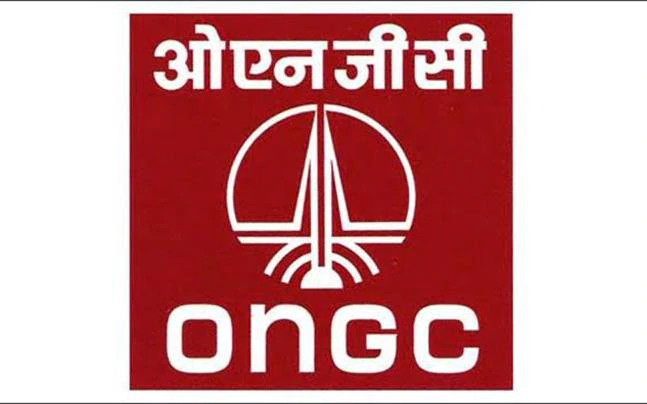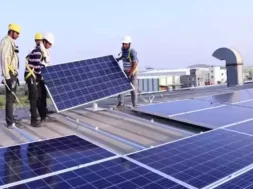
Over 80 per cent of the 51 Indian companies responding to the Carbon Disclosure Project (CDP) India have reported one or more types of emission reduction targets and initiatives this year, a new report said on Tuesday.
About 40 per cent companies are committed to renewable energy production and consumption targets.
The CDP is an international organisation which works with shareholders and corporations to disclose the greenhouse gas emissions of major corporations.
Three Indian companies — Infosys Limited, Tata Motors Limited and Dalmia Cement (Bharat) Limited — have committed to 100 per cent renewable power and joined the RE100 campaign boosting the country’s clean energy ambition.
The CDP India report for 2017 was prepared in collaboration with ERM India by CDP, the non-profit global environmental disclosure platform.
In addition, 40 reporting companies have an internal price on carbon or intend to put one in place within the next two years.
Companies have declared a price ranging from $2 by Shree Cement to $29 by Ambuja Cement, said the report.
At the global level too, there is reason to be optimistic.
Nearly 90 per cent of the world’s biggest, most environmentally-impactful companies now have carbon emissions targets, with a fifth planning low-carbon into their futures to 2030 and beyond.
The world’s biggest annual tracker of how these companies are responding to climate change was published globally on Tuesday by the CDP across many regions.
Picking up pace, the second edition in the annual tracking corporate action on climate change series finds that more leading companies are embedding low-carbon goals into their long-term future business plans.
They are also increasingly aligning themselves with the carbon emissions reductions scientists say are needed to prevent dangerous climate change.
Fourteen per cent of the global high-impact sample of 1,073 responding companies have future-proofed their growth by committing to set science-based targets via the Science Based Targets initiative (SBTi).
These are emissions reduction targets in line with the level of decarbonisation required to keep global temperature increase below 2 degrees Celsius, the central aim of the Paris Agreement signed by nearly 200 nations.
An additional 317 companies, 30 per cent of the sample, aim to set science-based targets within two years.
Existing targets take the sample almost one third, 31 per cent, of the way to being consistent with keeping global warming below two degrees, a notable improvement since last year, 25 per cent, reflecting the rise in science-based target-setting.
In India, Wipro, Tech Mahindra, Hindustan Zinc and Mahindra Sanyo Steel along with Aditya Birla Chemicals have committed to SBTi.
“No sooner had the Chinese authorities announced setting up of carbon markets in several regions, CDP witnessed a 40 per cent jump in companies reporting an internal carbon price,” Damandeep Singh, Director CDP India, said.
“With the Indian government too exploring regional carbon markets, it is only a matter of time till we see exponential growth here as well,” he added.














